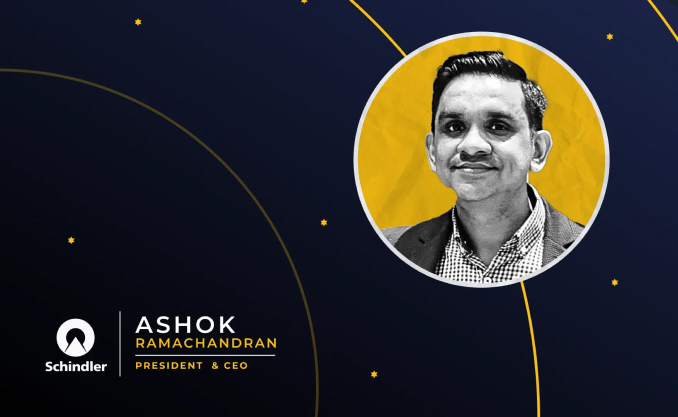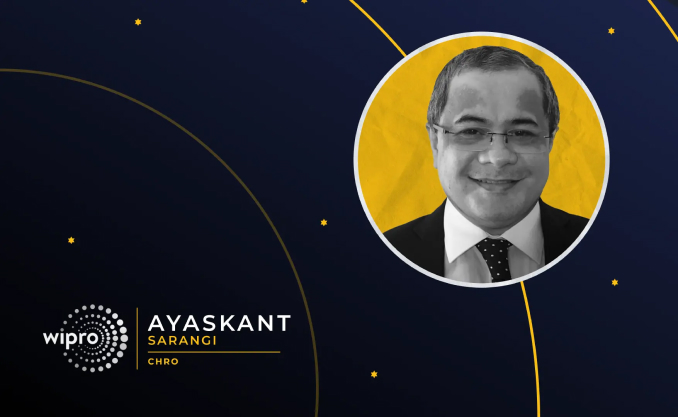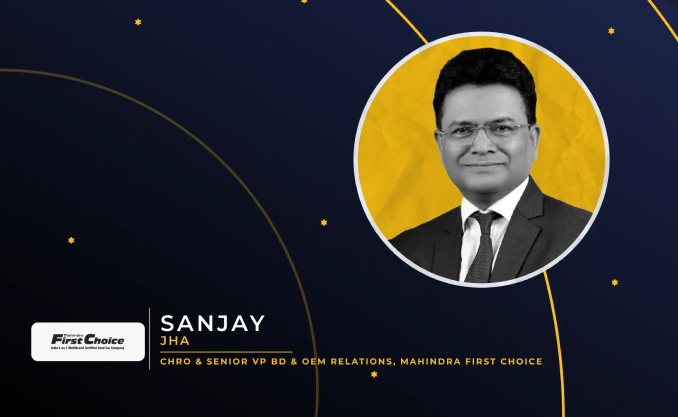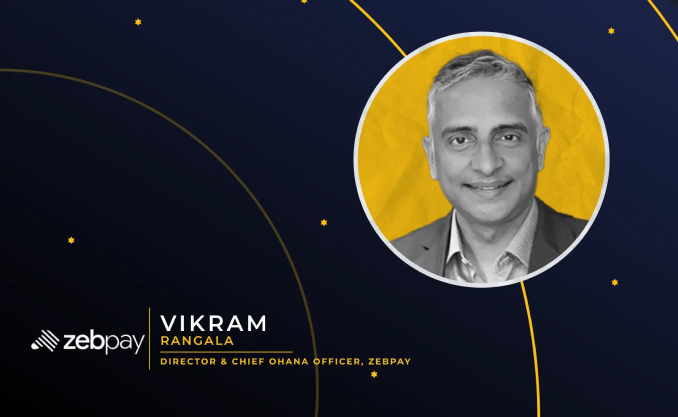Ramakrishna Vyamajala is the CHRO at Home First Finance and has been an integral part of the organization for 4 years. While donning multiple hats throughout his career, Ramakrishna has also been a part of IDFC bank and Vedanta
Ramakrishna points out a crucial trigger to changes in one’s career, “You have to invest in yourself and there are going to be ups and downs and you have to be a part of it because even the downs are an experience in itself.”
When you start an organization, you need to keep changing the direction. Only then will you stabilize into an organization that then becomes successful.
Hi Ramakrishna! It's an honor to have you with us. For our readers, if you could give a brief about yourself and your role at Home First Finance
Hi everyone, this is Ramakrishna! I head HR for a fast-growing home financing organization called Home First Finance. We are an affordable housing company. We help people get their first homes. That’s our stated objective. So, we give home loans to people who otherwise don’t get it from banks because they are self-employed, cash salaried, work in smaller places, have family incomes, such types of people and we ensure that they get the best of service.
I started here in 2018. So, it’s been four years now and I build the HR function here. So very proud about that fact. Started as the first HR person in the organization. And then while this is a ten-year-old company, as the next phase of growth started, they got me in it. So that’s how I joined Home First.
Before this, I worked with a financial services conglomerate that turned into a bank, which is IDFC, now called IDFC First Bank. I spent eleven years there and did quite a variety of roles.
I worked in HR technology, competition, benefits, operations, business partnering, project management, multiple such hats, and a few business roles here and there.
And I started my career with a company called Vedanta. Before IDFC, I was in Vedanta. It was a mining and metals company. I spent a year and a half in the zinc smelter running HR interventions. Then I moved on to become the Head of HR for a small plant in Silvassa, in the power transmission business. The role was to integrate the smaller plant into a larger organization, review its rules, policies, and processes and set up something new.
So, I think in a nutshell, if I were to tell my career has been about building reimagining, coming up with things that are built from scratch. I think I’ve been very fortunate to be doing that over and over again. But I did not have to move like 10 to 15 organizations to do that. Just got that in just three organizations overall I am very fortunate to have had that opportunity.
That’s me.
That has indeed been an enriching journey for you. Thanks for sharing! What is the most important motivating factor of being an HR leader?
For me, it has been a combination of 2 things. One is making an impact in whichever role I worked in. So that was one of the motivating factors to work in a role that makes an impact, which continuously gave me motivation. And that was always my driving force. In different contexts it becomes different. So, while I will be able to make an impact, I will also need to reinvent myself every time.
I’m an introvert by nature. I’m not very outspoken. Being outspoken is not an inherent quality, but it’s something that kind of makes me take that extra step. It would have been easier in, say, a function like finance where I could sit back and do stuff and get recognized for that.
What are some of the challenges that you faced as an HR professional during the early days of the pandemic?
I think, for everyone, it was just about understanding what’s going on and trying to figure out what else needed to be done or what is it that we need to do. In the very initial phase, we just didn’t know what to do. How do you quickly come up with solutions and make them a lot more? I mean, I think for ages we’ve been creating policies, so if something comes up, we would quickly create a policy. But it was always a one size fits all policy with some flexibility here and there.
Whatever we do has to be personalized. Everyone’s going through a completely different phase in their own life. How do you ensure that while you are bringing in that back-to-office kind of a situation, you still do it with empathy and understanding of the situation of the people?
I think all of it had to be reimagined. While we could provide solutions, how we provided solutions had to undergo a massive change. That was the biggest challenge, to bring about changes, bring about ways of working which were able to drive us through the pandemic period but were largely personalized.
How do you, as an HR leader, ensure that employee retention is a priority at Home First Finance? Your thoughts on this?
I think HR professionals have been trying to find an answer to this for a while. The great resignation always existed. It became great as the numbers just moved up. Some parts of its additional attrition come from some of the changes in lifestyle that happened due to COVID. And like I said, if something was to do with COVID, if somebody wanted a different lifestyle because of what happened during COVID and therefore leaving your organization, I don’t think you can do anything. Be transparent about your organization’s policies, philosophy, and culture. Ensure that the employee finds purpose in what they’re doing.
I would continue to focus on which we may not have cracked till now. You will continue to reduce the attrition that you had existed. And I think that is where we are also focusing as an organization. We are not saying to people who want to work from home how do I change my organization’s policies to ensure that I fit them in? It’s not the place for them. So how can you spend time educating people about the organization and about us that will be a critical part. I think it all boils down to that.
Yeah, it’s a process, it’s not a temporary or short-lived process. You have to invest and there are going to be ups and downs and you have to be a part of it because even the downs are an experience in themselves.
When I joined IDFC, which is where I spent the maximum amount of time, almost eleven years, I didn’t plan that IDFC would go this way. I started understanding where the organization is coming from when they were giving me the opportunities. I would have done some 14 different combinations of roles in the eleven years that I was with IDFC.
It’s not that I just took up different roles but it was like a combination of learnings. The startup is a good example nowadays for everybody to look at. The first two or three years are about investment. It is putting in that it’s like any other startup, you’ll have to look after your job as a startup.
When you start an organization, you will keep changing the direction. Only then you will kind of stabilize into an organization or a product and a feature list that then becomes successful. Similarly, people who are taking jobs should treat their job as a startup that they are starting. There will be ups and downs in every role when you spend a long time, and therefore taking that as an opportunity will help you become better. In the first two to three years, people who struggled did not give up, and therefore they became successful in their jobs.
From a perspective of a typical day or a typical week, how do you divide your time to focus on the different tasks that you do?
My typical day one might be very different from day two and day three, so I don’t have a typical day. Broadly, I have three or four things that I do every day, which I try and do. One, spend some time thinking about what is next with my team. I do that religiously at least two to three days a week, if not more because what happens is you just get caught up in what you’re doing today that you don’t get time to drop some things that are going on and on dragging, but they are not adding value. Just because you want to continue to execute, you do so. There is a lot of passion with which you create something very difficult to leave. So that is something that we constantly strive to cut the task of executing ten different things which are not useful.
Walk around the office every 15 minutes, except if I’m in a meeting. Whenever my boss is around, I just wave at him. Get a sense of where the organization is going.
So, these are 3 things that I try and do religiously to keep me refreshed.
Yeah, I like the point where you said it's very important to build a good rapport with everyone. Like, initiate conversations with them. You need to have that momentum going with your seniors too.
Yeah, with your leader, you should have that initiative to kind of go around, catch up, catch a small talk, or whatever it is. So once the best of the roles come up, they generally look at you because you’re around, it makes a lot of difference, I think. Your boss has 7, 8, or 10 people that he or she is managing. So, you need to take the initiative with your leader while you are doing the same with your team.
Not so much now but at least in the early days that land me a lot of good projects which otherwise some of the time may not even be my role. But I got into projects which I felt lucky about.
Do you think the Indian market has openly embraced recruitment automation or has the adoption been slow?
We are not embracing it openly, but I think that’s the truth. This is with Indian organizations, maybe abroad as well. Having understood or spoken to a few people, I think it’s something we see in the entire world.
So, for example, in recruitment technology, organizations feel products try to replace the human element which gives a large amount of power to the people who are running it. And you go and pitch to them that from tomorrow you don’t have to take that call. Some technology will take that call from you. It hurts their ego.
It’s very difficult for them to accept that a piece of technology, a piece of code is going to replace their years of experience that have given them the ability to select higher candidates. So, they’ll give you thousands of reasons why that technology won’t work. That’s been ingrained. I think it’s an unfortunate truth of the HR fraternity. We have been very, very slow, particularly in the recruitment automation space.
Everything else I think, for example, payroll or performance management or the data management, etc, which does not need a lot of brain power in those places HR tech has kind of taken off in a big-time, in a very big way. But recruitment technology, unfortunately, people haven’t embraced it. I feel it needs to.
Does Home First Finance prefer automated recruitment solutions?
We’ve been experimenting. I think one of the things that I also feel that we should do is to experiment and try and see how many parts of this can become automated, and what activities we need to move on manually. So that I think recruitment teams should spend time working upon.
They shouldn’t be doing selections or taking interviews. And this is the example that I keep giving my team, is that most times we feel the recruitment teams are like sales teams going out there trying to sell the employer’s brand and, acquire new employees. But we should be like marketing teams, build a brand, create awareness about it, and then attract people. When you attract people, they’re the right people who will come in. When you try and go and sell to that person, it’s always 50-50.
Whether you’ve sold the right product to the right person or not. It’s 1:4. Right product, right candidate, wrong product, right candidate, wrong candidate, right product. So, all combinations are possible. So, for you to get the right product, the right candidate is one in four times.
So, therefore, attracting the right candidate is better than trying to sell to the right person. So, we have to move away from being a sales role to being a marketing role. And that’s the difference that technology will bring to recruitment, it will take away the sales job or sales equivalent job of the recruitment teams and give them the opportunity, time and effort, and the ability to do the marketing job, to create brand awareness, to attract the right talent, make the right tie-ups, et cetera.
Lastly, if there’s one piece of advice that you would like to give to HR professionals, what would it be?
I think one of the things that I keep telling my team is one step at a time. If you can change the perception of the HR function by being more business-oriented, by kind of aligning to the goals of the organization, and creating initiatives that make a real impact, then you leave your legacy in any organization that you work with. Just try and leave behind a better place than what you inherited. Whenever you work with an organization, particularly in the function of HR, you have the scope and ability to do it. May not be in a lot of other functions, but in this function, you have the ability. You have the mandate and the opportunity to do it. Might as well do it. So that’s about it for younger folks.


















